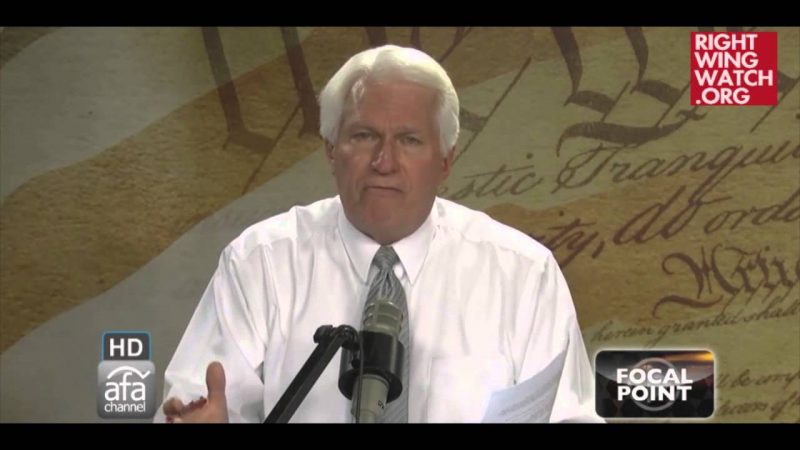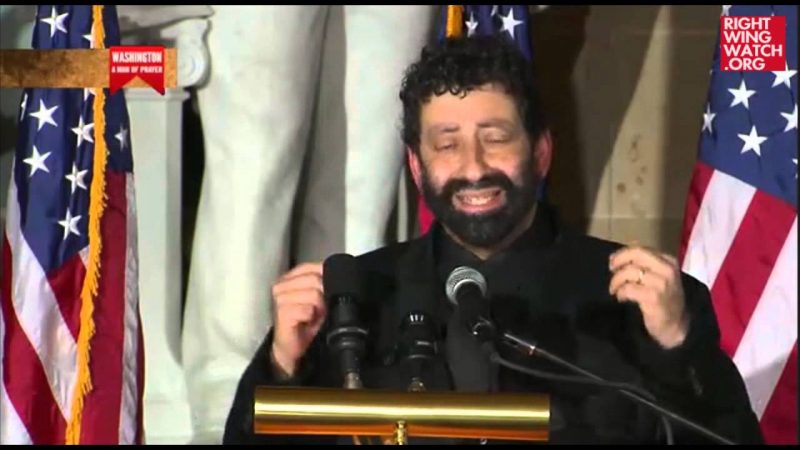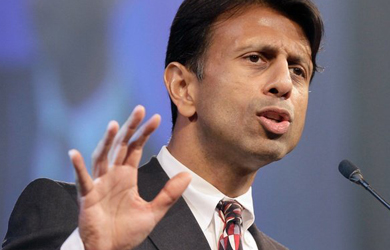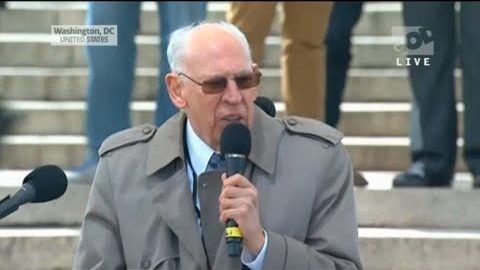As we noted in our earlier post about the prayer event recently held in Statuary Hall at the US Capitol, the event was called “Washington: A Man of Prayer” and was organized around honoring the 223rd anniversary of George Washington’s inauguration.
As such, it was totally expected that David Barton would be there to present his patented brand of pseudo-history, which he did when he trotted out his favorite myth about Washington as captured in this famous painting that Barton used for the cover of one of his books:

As Barton relates the tale, a British loyalist named Issac Potts owned a home near where Washington was camped at Valley Forge and one day stumbled upon Washington alone in the woods making supplication to God on behalf of his army and the American cause, causing Potts to rush home and declare to his wife that the British cause was lost since God would most assuredly answer the prayers of any man who prayed with such conviction:
You will surely be shocked to learn that, contrary to Barton’s assertion, this apocryphal incident never actually happened, as History Professor John Fea explained in his book “Was America Founded As a Christian Nation?:
There is one major problem with Potts’s story of Washington praying at Valley Forge – it probably did not happen. While it is likely that Washington prayed while he was with the army at Valley Forge in the winter of 1777-1778, it is unlikely that the story reported by Potts, memorialized in paintings and read to millions of schoolchildren, is anything more than legend. It was first told in the seventeenth edition (1816) of Mason Lock Weem’s Life of Washington. Weems claimed to have heard it directly from Potts, his “good old FRIEND.” Potts may have owned the house where Washington stayed at Valley Forge, but his aunt Deborah Potts Hewes was living there alone at the time. Indeed, Potts was probably not even residing in Valley Forge during the encampment. And he was definitely not married. It would be another twenty-five years before he wed Sarah, making a conversation with her in the wake of the supposed Washington prayer impossible. Another version of the story, which appeared in the diary of Reverend Nathaniel Randolph Snowden, claims that it was John Potts, Issac’s brother, who heard Washington praying. These discrepancies, coupled with the fact that Weems was known for writing stories about Washington based upon scanty evidence, have led historians to discredit it.
As we have said before, just because something might be demonstrably untrue, that is not going to stop Barton from repeating it.








